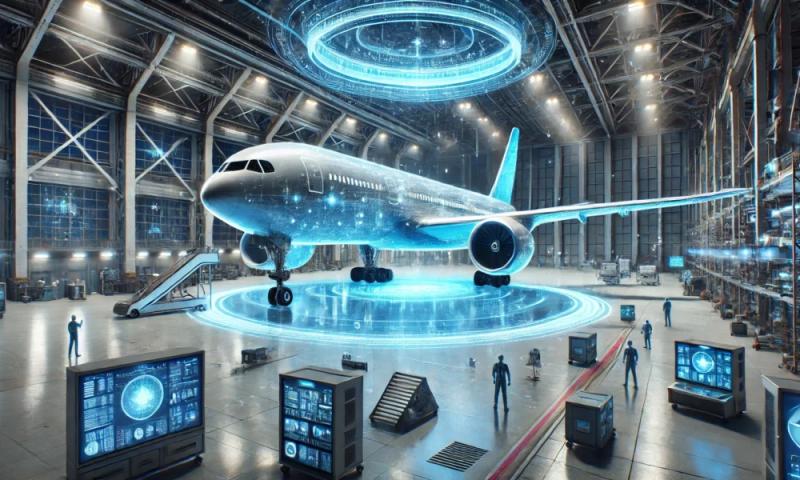The era of AI-powered innovation in space travel is upon us, bringing forth a new wave of technological advancements that are reshaping our understanding of the universe. As we stand on the cusp of this new frontier, the possibilities seem boundless. This article delves into how artificial intelligence is revolutionizing space travel, making it more efficient, safer, and more accessible.

The Role of AI in Modern Space Exploration
Artificial intelligence (AI) has become a pivotal tool in the arsenal of space explorers. It is enhancing our capabilities to navigate the cosmos with precision and efficiency. The integration of AI technologies in space missions is not just a trend but a necessity for overcoming the challenges of space exploration.
AI in Autonomous Spacecraft Navigation
One of the primary applications of AI in space travel is in the autonomous navigation of spacecraft. With AI, spacecraft can make real-time decisions, adjust their trajectory, and manage resources without human intervention. This autonomy is crucial for missions to distant planets where communication delays make real-time human control impractical.
Enhancing Safety and Efficiency
AI is also playing a critical role in enhancing the safety and efficiency of space missions. Advanced AI algorithms can predict potential system failures, optimize fuel consumption, and ensure the safety of astronauts by monitoring their health and the spacecraft’s environment.
AI in Satellite Deployment and Management
The deployment and management of satellites are another area where AI is making significant strides. AI systems are used to optimize satellite trajectories, predict weather patterns, and manage communication networks. This not only improves the efficiency of satellite operations but also extends their operational lifespan.
AI for Satellite Communication Optimization
AI technologies are employed to enhance satellite communication by optimizing data transmission and reducing latency. This ensures that data from satellites is transmitted efficiently, which is crucial for applications such as weather forecasting, navigation, and global communication networks.
AI in Satellite Payload Analysis
AI is transforming how we analyze satellite payload data. By applying machine learning algorithms, we can extract more meaningful insights from the vast amounts of data collected by satellites. This enhances our understanding of Earth’s environment and supports scientific research.
The Impact of AI on Mars Exploration
Mars exploration has been one of the most exciting aspects of space travel. AI is playing a vital role in making Mars missions more feasible and successful. From managing rover operations to analyzing Martian soil samples, AI is at the forefront of our quest to explore the Red Planet.
Autonomous Rovers on Mars
AI-powered autonomous rovers are revolutionizing Mars exploration. These rovers can navigate the Martian terrain, avoid obstacles, and make decisions about which scientific experiments to conduct, all without direct human control. This autonomy allows for more efficient and effective exploration of the Martian surface.
AI in Mars Habitat Design
Designing habitats for future human missions to Mars is another area where AI is making significant contributions. AI algorithms can simulate different environmental conditions on Mars and help engineers design habitats that are safe and sustainable for human habitation.
AI and Human Space Travel
The integration of AI in human space travel is opening new possibilities for long-duration missions to other planets. AI systems can assist astronauts in performing complex tasks, monitor their health, and provide psychological support during long missions.
AI in Crew Health Monitoring
AI technologies are being used to monitor the health of astronauts in real-time. By analyzing data from wearable sensors, AI can detect signs of fatigue, stress, or illness and provide early warnings to prevent health issues.
AI for Psychological Support
Long-duration space missions can be psychologically challenging for astronauts. AI systems are being developed to provide psychological support by engaging in conversations, suggesting relaxation techniques, and offering entertainment options.
The Future of AI in Space Travel
The future of AI-powered innovation in space travel is bright. As AI technologies continue to evolve, we can expect even more groundbreaking advancements in space exploration. From advanced propulsion systems to AI-driven scientific discoveries, the possibilities are endless.
AI in Propulsion Systems
AI is being used to develop more efficient propulsion systems that can reduce travel time to distant planets. By optimizing fuel consumption and managing propulsion systems, AI can make space travel faster and more cost-effective.
AI-Driven Scientific Discoveries
AI is also playing a crucial role in scientific discoveries by analyzing data from space telescopes and other instruments. By identifying patterns and anomalies in the data, AI can help scientists make new discoveries about the universe.
Conclusion
In conclusion, AI-powered innovation in space travel is transforming the way we explore the universe. From autonomous spacecraft navigation to enhancing the safety and efficiency of space missions, AI is playing a pivotal role in shaping the future of space exploration. As we continue to push the boundaries of what is possible, the role of AI in space travel will only become more significant. For more insights, visit ResearchGate and DXC Technology.

FAQs
1. How does AI improve space travel?
AI improves space travel by enhancing navigation, increasing safety, optimizing satellite operations, and enabling autonomous missions.
2. What role does AI play in Mars exploration?
AI plays a crucial role in Mars exploration by enabling autonomous rovers, analyzing soil samples, and assisting in habitat design.
3. Can AI assist astronauts on long-duration missions?
Yes, AI can assist astronauts by monitoring their health, providing psychological support, and helping with task management.

